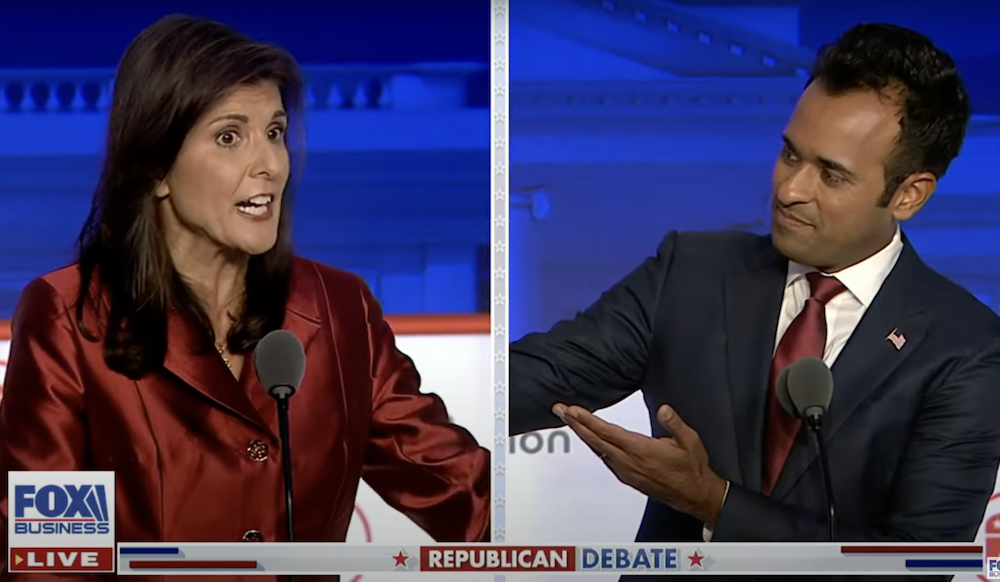It’s hard to believe that many second- and third-generation Indian Americans would subscribe to the views of the two candidates.
By Shekar Narasimhan
When asked how I feel about Nikki Haley and Vivek Ramaswamy running for the Republican nomination for President of the United States, my initial reaction is to express my pride that “we have arrived.”
The “we” is, as a leader in the Asian American, Native Hawaiian and Pacific Islanders (AANHPI) community and as a first-generation Indian American immigrant.
Then, my second reaction is to recognize that I could not support either of them, notwithstanding the filial bonds, as their values are so different. To be more discerning, there is a distinction between the two: Haley, a former governor of South Carolina, possesses credibility and is less bombastic. But she reminds me too much of former Louisiana Gov. Bobby Jindal — flair, ambition and promises, but little relationship to the community and lacking the integrity I expect of candidates.
OPINION: Shekar Narasimhan: Trump indictment was inevitable but still sad for America (April 3, 2023)
It is not the first time that AANHPI candidates have appeared on a presidential debate stage. In 2020, there were three: Rep. Tulsi Gabbard participated in one debate, Sen. Kamala Harris in two, and Andrew Yang lasted for a few more.
Gabbard touted her Hawaiian heritage and Hindu connections, while Harris did not prominently display her Indian American identity (and, to put it in context, India was not yet considered a “rising power”). As for Yang, while his heritage was evident, he used it to his advantage and ran as an outsider with innovative ideas.
However, Vivek Ramaswamy falls into a different category — best described as a mini-Trump and a political entrepreneur, akin to Yang. Yet, he is so inconsistent and contradictory that it could be seen as political malpractice, even in the Trumpian era!
Here are a few simple data points:
- Ramaswamy now wants to…
Read the full article here





